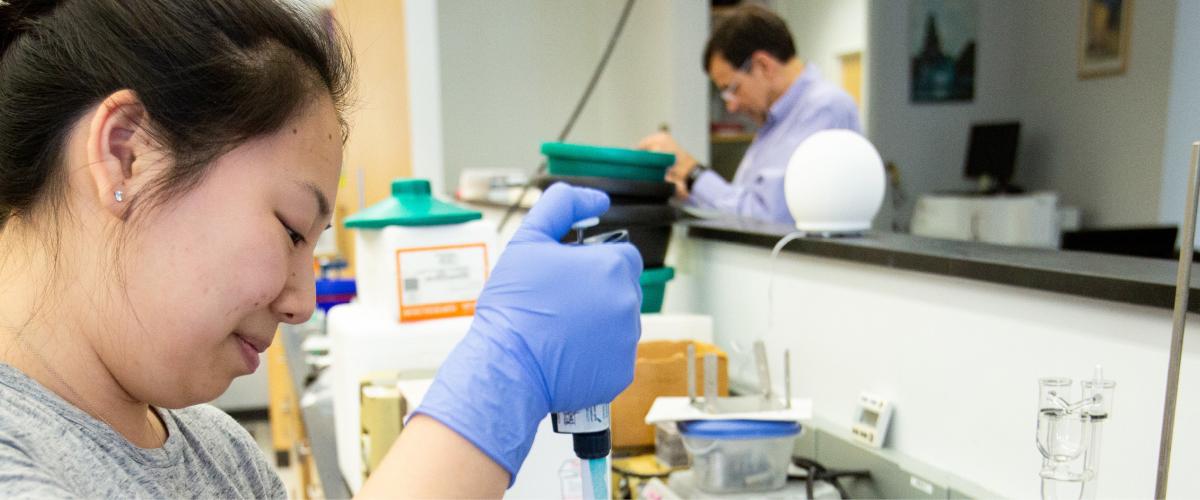
Minimum Coursework. Maximum Research
The Biochemistry PhD is a year-round, research-intensive degree that’s supplemented with minimal classroom study and is tailored to your interests. Foundational coursework is completed in your first year and electives are taken in your second. Also in your first year, you will rotate through three-four different labs, and at their conclusion, match with a faculty mentor on a mutually agreed-upon research project.
Each biochemistry PhD student must produce an independent body of original, high-quality, scientific work. Though circumstances may vary, typically this means authorship on two peer-reviewed publications, including at least one where you are the first author. Authorship should happen prior to or soon after graduation.
In our collaborative environment, we encourage knowledge-sharing, giving you opportunities to continuously learn from other students, our research associates, and faculty through presentations and lively Q&A at intradepartmental seminars and our annual retreat. So if you don’t know how to get the answer to a research question, you can always find someone in the department or school who does!
—Meta Kuehn, Biochemistry DGS
Timeline to Your PhD
YEAR 1
- Attend new student orientation in the department and Duke Community
- Participate in Responsible Conduct of Research (RCR)* events
- Take recommended coursework in foundational areas of biochemistry (fall semester) and elective coursework (spring semester)
- Rotate through 3-4 labs in diverse research areas, each 7-8 weeks in duration, before choosing your final lab
YEAR 2
- Conduct research
- Take elective coursework
- Complete required teaching assistantship during fall, spring, and/or summer semester
- Select supervisory committee and initiate initial “pre-prelim” meeting to discuss research direction
YEAR 3
- Conduct research
- Take required preliminary (qualifying) examination for advancement to PhD candidacy during fall semester
- Develop Individual Development Plan (IDP) which includes short- and long-term training milestones, initial career objectives and goals, skills assessment, and competencies
YEAR 4 +
- Conduct research and meet annually with dissertation supervisory committee
- Report research outcomes in peer-reviewed, scientific journals
- Present research at national and/or international conference(s) (often subsidized by Duke Graduate School and the Biochemistry Department Travel Awards)
- Take required RCR training refresher and career planning workshop
- Update IDP and participate in career development seminars, round-tables, and activities
- Prepare approved PhD dissertation document
- Formally present dissertation in public and defend before dissertation supervisory committee
More in-depth timelines and requirements for the PhD Degree in Biochemistry can be found in the Biochemistry Graduate Student Handbook.
*Responsible Conduct of Research (RCR): We expect that every doctoral candidate can address the growing ethical challenges that arise when teaching or conducting research. Therefore, our graduates must attend our initial inter-departmental ethics training retreat and refresher seminars throughout their graduate training period. The completed RCR course will be noted on the student’s transcript.